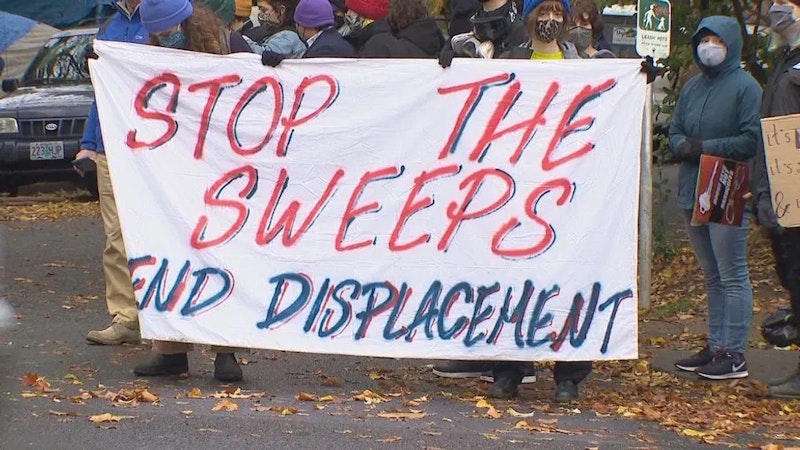A matriarch’s funeral is always going to be one of the largest and most symbolic in a family—not to mention the amount of people it brings out of the woodwork, including myself. Since coming east I only make it back to Portland once or twice a year, and I’m a prime suspect of being the relative only at “big” family events. I’m a part of a fascinating blend of cousins and family friends that haven’t been all together for a decade, if ever, and I’m fielding questions of why I left my hometown by an older generation that has already made up an answer: “crime.”
They forget that I left almost a decade ago, long before that became a buzzword in the city, let alone the fact that I moved to a town that their only image is of a TV-and-tabloid notion of “crime.” Someone assured me that I wouldn’t believe the things his cop son-in-law has told him about what Portland has “turned into” and I’m sure I wouldn’t, only not for the reasons he’d assume.
Sometime after I left for college in the mid-2010s, the “retail apocalypse” started to strike downtown and clear out the mall in Pioneer Square, with every subsequent visit home leading to more and more desolate city interiors and only vague memories of the Pottery Barns and chocolate stands from my childhood. Nobody took much note until they all spent too much time at home, and all of a sudden abandoned shops that nobody would bother filling was the work of “antifa” or the “homeless”—not the flight of capital when gentrified downtown properties became too expensive to keep up with the two-day Prime one-click-now deliveries that everyone gets dropped on their suburban porches four times a week. The forces outside the city, beyond the city, couldn’t be killing it during a supposed renaissance; it had to be an invasion of the city itself.
The obvious perpetrators, they say, are the ones increasingly tented up across the sidewalks they won’t cross anymore. There’s more every day, not bused in like when Reagan shut down the mental hospitals—a move cheered into existence by Ken Kesey’s idiotic, Oregon transplant notions fueled by the kind of CIA acid that turned a militant left-wing generation into a bunch of pathetic pranksters and investment bankers—now the houseless are homegrown, born from rising home prices as the city turned into an advertisement for itself: the hip next stop for tech money flowing up the coast. Once “Tear Gas” Ted Wheeler got into office, the town that wasn’t just a safe haven for people on the streets but a place to get off of them became just another Pacific police sweep. Fences went up, boulders were put under bridges, the camps that I rode by on the bus to high school that made communities, got people jobs, hot showers and food, got torn up in favor of fresh 5-over-1s that could house a hip eatery with glass walls and a host of people moving up from Cupertino making six figures.
Criminalizing being on the street coincided perfectly with that brief criminalizing of being outside at all—the city forgetting about its unhoused population while raucously reconciling its white supremacist past. Now “antifa” were the enemy the suburbanites were looking for, a fictional group where they misidentified a tendency of people to protest against fascism as some kind of formal entity. They found a boogeyman antithetical in function to what they understand (spontaneous organizing) which pointed out the truth that they needed to deny (Portland’s original sins and continued veins of fascism) and made it the cause of all their woes, things they’d already wrought into existence. Broken windows aren’t getting fixed, people aren’t going downtown. They say it’s because of the tents and anarchists, but they’d already stopped going long before that, they just needed someone to blame.

